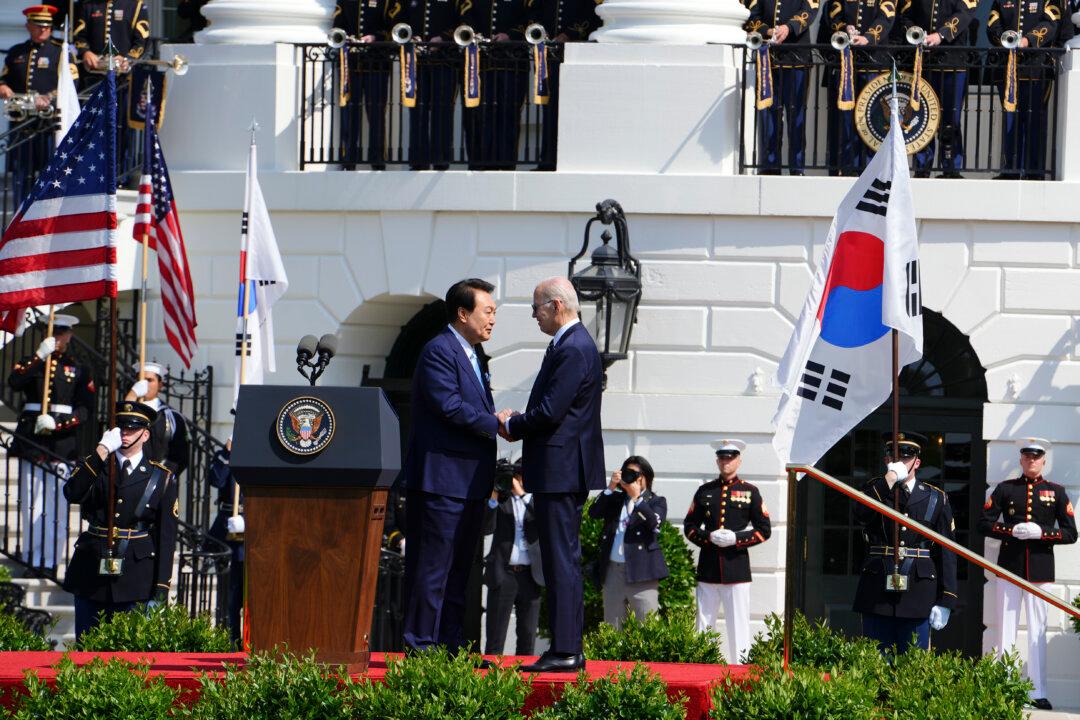The agreement between the United States and South Korea to strengthen U.S. extended deterrence does not constitute a “de facto nuclear sharing” between the two allies, a White House official said.
“I don’t think that we see this as a de facto nuclear sharing,” Edgard Kagan, special assistant to the president and senior director for East Asia and Oceania of the National Security Council, said Thursday.





